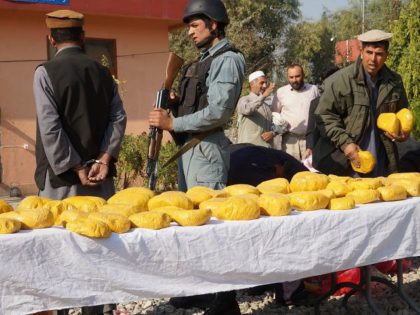U.N. Warns that Afghanistan Isn’t Producing Enough Opium
The U.N. warned that the Taliban could cause overdose deaths from synthetic alternatives by shutting down opium production in Afghanistan.
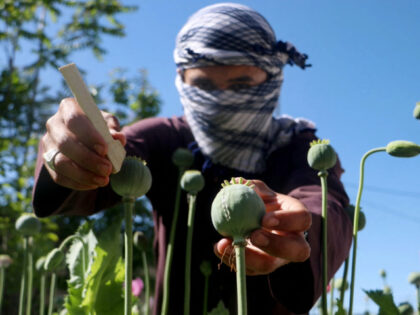
The U.N. warned that the Taliban could cause overdose deaths from synthetic alternatives by shutting down opium production in Afghanistan.

The United Nations revealed that, according to its estimates, Myanmar is now the world’s top producer of opium, dethroning Afghanistan.
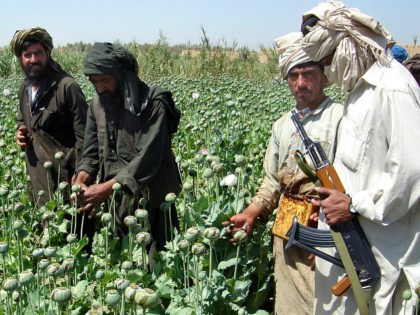
The United Nations revealed in a study published on Sunday that, under Taliban rule, Afghanistan’s opium supply dropped by 95 percent in one year and the nation’s opiate economy has experienced “near-total contraction.”
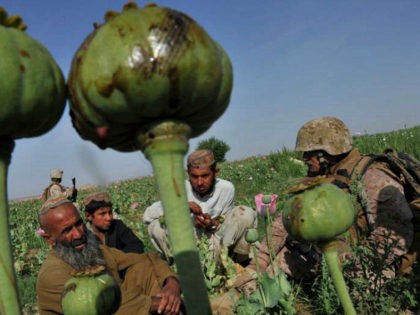
The United Nations Office on Drugs and Crime (UNODC) revealed in a report on Tuesday that prices in Afghanistan for opium products “soared” in the past year and 32 percent more territory nationwide has been dedicated to cultivating the narcotic – statistics that reveal a booming industry under Taliban rule.
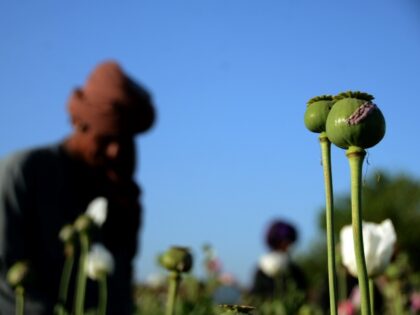
Ian McCary, the U.S. Charge d’Affaires for Afghanistan, on Monday praised the Taliban regime for supposedly banning the cultivation of opium poppies.
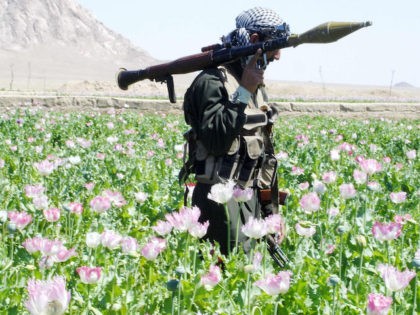
Taliban jihadists in Kabul, Afghanistan, staged a “graduation” of sorts for drug addicts forced into a brutal withdrawal program allegedly meant to rehabilitate them, the Afghan Bakhtar News Agency reported on Monday.
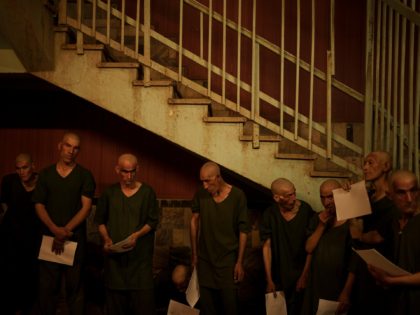
Kabul-based drug addicts interviewed by the Pajhwok Afghan News Agency this week urged the Taliban terror group to “prevent the sale and purchase” of illicit drugs in Afghanistan.
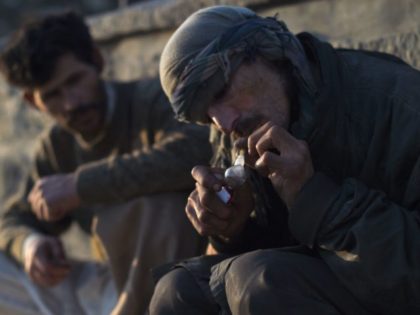
The Taliban terror group on Tuesday claimed Afghanistan “will no longer be a hub for poppy cultivation or for the drug business” now that the jihadist group has gained control of the country, Afghanistan’s Tolo News reported Tuesday.
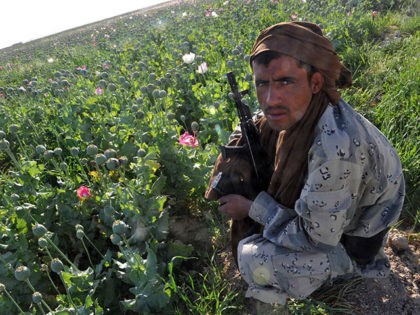
Afghan farmers claim to have “no other choice” but to illegally grow poppies – a lucrative opium crop that fuels the country’s Taliban terror group – amid the economic downturn caused by the Chinese coronavirus pandemic, Radio Free Europe/Radio Liberty (RFE/RL) reported on Friday.

Fully integrating Afghanistan into China’s Belt and Road Initiative (BRI) will require the construction of rail lines through the southern part of the South Asian country, home to the Taliban’s primary stronghold and the nation’s top opium-producing region.
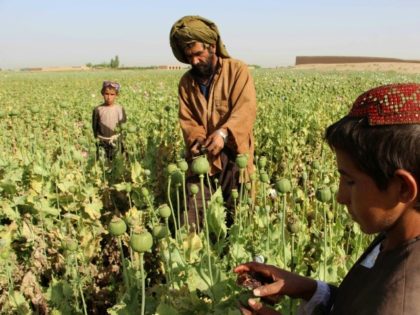
Colombian President Juan Manuel Santos won a Nobel Peace Prize for giving terrorists unelected seats in Congress, disregarding the rejection of the Colombian people.

Drought in Afghanistan last year decimated the cultivation and production of opium, but the deadly drug remains a threat to peace and security, the United Nations says in a report released Tuesday.

A court in Colombo, Sri Lanka, this week ordered the continued detention of nine Iranians caught with 107 kg of heroin this year, the local news outlet Ada Derana reported.
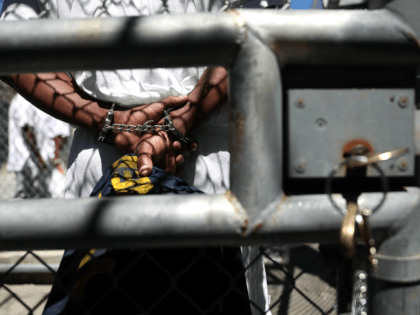
U.S. President Donald Trump’s administration reportedly indicated this week that it wants American taxpayers to foot the bill for Taliban expenses incurred during the ongoing peace talks to end the Afghanistan war, but a Democrat-controlled House committee denied the request.

The United States government has decided to either classify or do away with “almost every” metric for success or failure in Afghanistan, John Sopko, the U.S. Special Inspector General for Afghanistan Reconstruction (SIGAR), revealed this week.
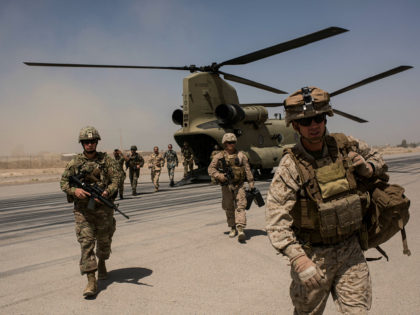
Deadly clashes between jihadi rivals the Taliban and the Islamic State (ISIS/ISIL) have intensified this week in eastern Afghanistan’s Nangarhar and Kunar provinces, reportedly leaving several terrorists dead and displacing hundreds of families.
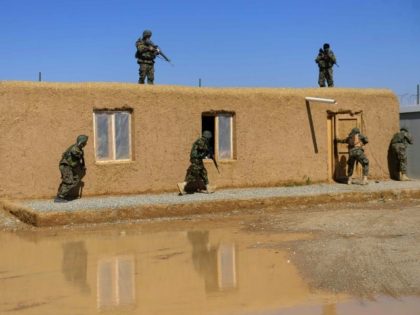
Residents in the opium-rich Taliban stronghold Helmand, Afghanistan’s largest province, reportedly expressed outrage at the arrest of two female al-Qaeda jihadis by local authorities and demanded their immediate release, Khaama Press (KP) reported Tuesday.
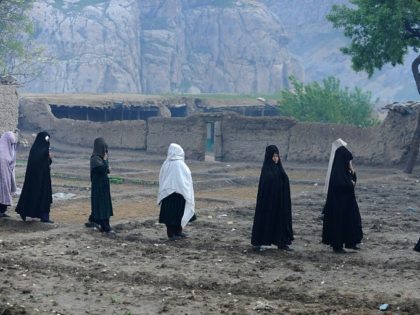
The United States must tackle the Taliban’s top source of funding in Afghanistan – deadly opium and its heroin derivative – whether there is a peace agreement or not, U.S. Special Inspector General for Afghanistan Reconstruction (SIGAR) John Sopko told Breitbart News on Thursday.
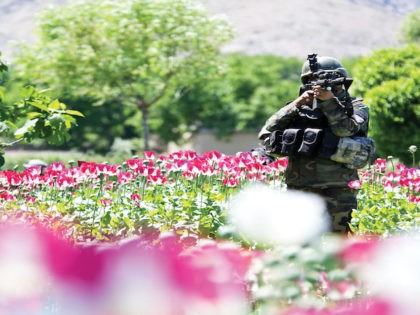
The ongoing deteriorating security conditions on the ground in Afghanistan do not warrant the proposed withdrawal of American troops, the top commander charged with overseeing U.S. military activity in South Asia declared on Thursday.

U.S. President Donald Trump’s administration, amid ongoing peace negotiations with the Afghan Taliban, quietly ended an airstrike campaign against Taliban opium and heroin drug labs after failing to curtail the terrorist organization’s multi-million dollar trade, the Pentagon’s inspector general (IG) revealed this week.
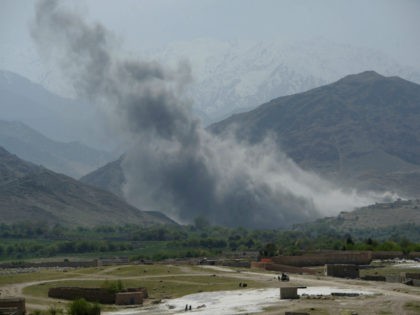
U.S. law enforcement, intelligence, and military officials have determined that China is the primary source of the illegal use of the synthetic opioid fentanyl fueling the deadly drug overdose epidemic gripping the United States, but Beijing claimed this week that China has nothing to do with the crisis.
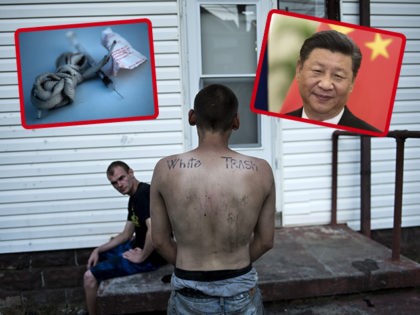
More than a quarter of the opium poppies grown in Afghanistan last year came from districts controlled or influenced by the Afghan government, the U.S. Special Inspector General for Afghanistan Reconstruction (SIGAR), a watchdog agency, reported Thursday.

The Department of State (DOS) indicated to Breitbart News on Monday that the U.S. supports a “balanced counternarcotics strategy” in Afghanistan where the Taliban appears to remain among the world’s most prolific opium producers.

Terrorists could potentially use fentanyl – a synthetic opioid is mainly produced in China that is the primary source behind the fatal overdose epidemic in the United States – as a “weapon of mass destruction,” Bloomberg News recently reported, citing experts and echoing other articles.
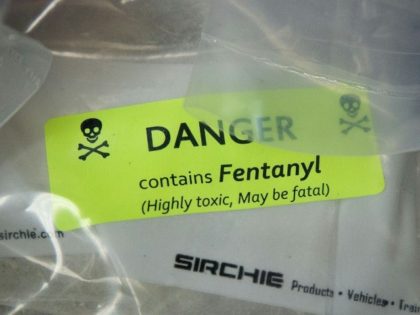
The U.S. is no longer interested in developing a “stand-alone” counternarcotics strategy in Afghanistan, choosing instead to back Kabul-led efforts to combat the opium and heroin trade that generates most of the Taliban’s funding.
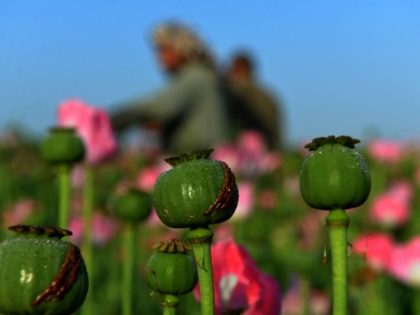
The unprecedented air campaign against the Taliban’s opium and heroin trade, seen as the group’s primary economic engine and worth hundreds of millions of dollars to the narco-jihadis, has failed to meet to expectations according to a Wall Street Journal (WSJ) report on Wednesday.
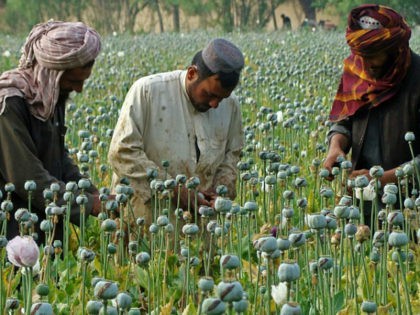
Taliban jihadists may be willing to abandon their long-held precondition that U.S.-NATO forces must completely pull out from Afghanistan before they agree to negotiate an end to the 17-year-old Afghan war, according to a report.

The U.S. is spending hundreds of millions of dollars on agricultural projects in Afghanistan, including irrigation canals linked to opium and heroin production.

The Obama administration, citing “political concerns” in 2013, derailed a plan to prosecute Taliban drug kingpins in U.S. courts that could have curtailed unprecedented heroin operations in Afghanistan that fueled the deadly opioid crisis across the United States, a Politico investigation found.

A U.S. federal court reportedly sentenced an Afghan national to a mandatory minimum of ten years in prison this week in connection to a multi-million-dollar conspiracy to smuggle heroin used to fund the Taliban’s terrorist activities from Afghanistan into the United States.

Washington, DC — American taxpayer money has funded irrigation canals, farming equipment, and even fertilizer used to support the unprecedented poppy cultivation and heroin production in Afghanistan mainly benefiting Taliban narco-jihadists, U.S. officials found.

The historic production of opium and its heroin derivative in Afghanistan — with a record output value of up to $6.6 billion last year, or nearly a third of the country’s entire gross domestic product — appears to provide better prospects for job security than any other industry in the nation.

U.S. airstrikes targeting drug labs in Afghanistan reportedly drove a Taliban commander in Helmand, the most opium-producing region in the world and one of the group’s major strongholds, to move heroin factories away from urban areas into the mountains to avoid detection.

Russian President Vladimir Putin and Indian Prime Minister Narendra Modi have reportedly agreed to break ground on their countries’ first joint project in Afghanistan despite backing opposing sides in the Afghan war.
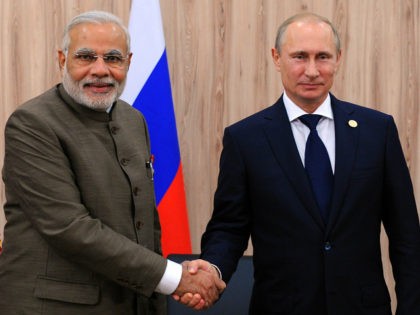
The unprecedented 9,000 tons of opium produced in Afghanistan last year will trigger a “wave of high quality, low-cost heroin” that will reach consumers across the world and inject tens of millions into the Taliban’s coffers, the United Nations warned on Monday.

The unprecedented U.S.-led air campaign against the Taliban’s economic engine, opium and heroin, has destroyed 73 drug labs and deprived the narco-jihadist group of $42 million in proceeds since President Donald Trump authorized the operations in November.

A U.S. federal court has reportedly convicted two Afghan nationals this year in connection to a multi-million-dollar scheme to smuggle “tons” of Taliban-linked heroin from Afghanistan into the United States.
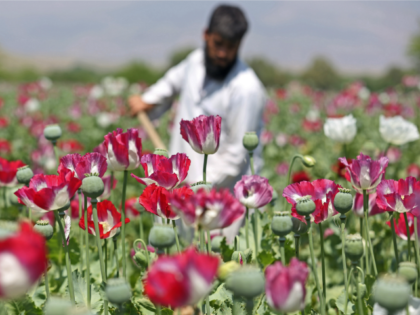
A U.S. Air Force B-52 Stratofortress recently launched an unprecedented 24 strikes on Taliban jihadists operating in a northern Afghanistan province that borders China, “setting a record” of the most bombs “ever dropped from a B-52,” the American military-NATO mission announced.
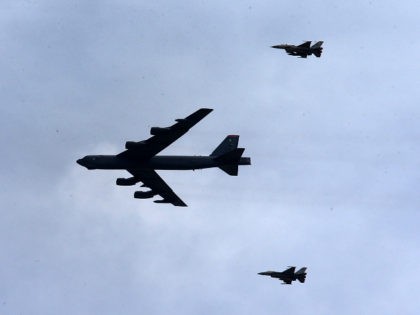
U.S.-NATO troops have demolished “30 Taliban narcotics processing labs” in less than three months, dealing the narco-jihadists a “more than $20 million” blow to their drug operations, primarily made up of trafficking opium and heroin, a spokesman for the international coalition in Afghanistan told Breitbart News.

The Trump administration’s record numbers of airstrikes in Afghanistan have failed to expand the Afghan government’s control over its population and stop the Taliban from quickly replacing its opium and heroin processing labs pulverized by the U.S. military, a watchdog agency said in a report to Congress released Tuesday.
